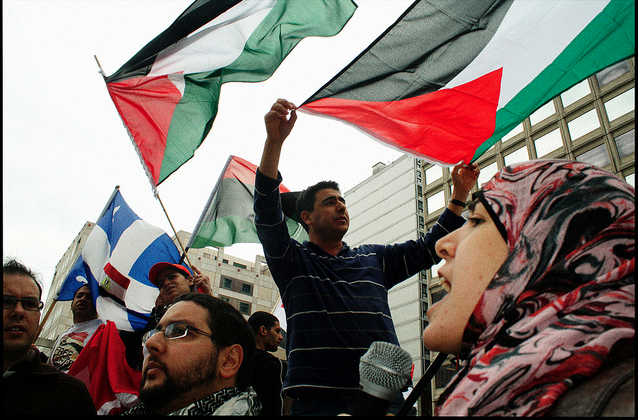Syrians are in trouble; thousands leave the country everyday, jamming refugee camps in neighbouring nations. Canada needs to step up and start increasing their acceptance of Syrian refugees.
Syria is in the middle of a gruesome civil war, with casualties numbered in the thousands. Feeling empathy for their suffering should be a bare minimum, as is granting asylum for refugees.
Dr. Rex Brynen is a political science professor at McGill University who specializes in Middle East politics and conflict zones. According to him, the Canadian government will do just that.
‘‘We’ll certainly be accepting refugees from Syria. Syrian refugees getting accepted in Canada is largely a function of how the rules work,” he said. “Most of the changes have been with dealing with large backlogs of claimants and strong numbers of illegal refugees.”
The specific changes Brynen speaks of relate to a recent tightening of immigration laws by the Canadian federal government.
Philippe Couvrette works in the communications department for Citizenship and Immigration Canada.
According to him, “The changes to Canada’s asylum system are scheduled to come into effect in the fall of 2012. With these changes, asylum claims will be heard much faster and the removal of failed claimants will be quicker.”
Syria has been in a civil war for almost two years now. The United Nations has been unable to take concrete action against Syria because China and Russia, both on the Security Council, have used their veto power to block the Western countries on three resolutions aimed at pressuring Syrian President Bashar al-Assad to stop.
However, conducting a military intervention in Syria could potentially backfire. When the Americans invaded Iraq in 2003, they expected a swift and utter win. Instead, they stayed for eight years and left the country in turmoil.
Thus, the international community must find other ways to help countries without intervening directly, which includes accepting refugees.
Meanwhile, al-Assad insists on keeping his position, and radicals continue to slaughter rebels and civilians alike. So far, 30,000 have died as a result of this civil war. Thus, speeding up the process of deliberation on granting refugee status in Canada can be seen as a boon for Syrians fleeing their country.
Although Canada has closed its embassy in Syria, it will continue to offer its services to Syrians in its embassy in Jordan.
Turkey, Jordan and Lebanon are the three main adjacent countries to which 358,000 Syrians are fleeing. Unfortunately, all three countries are rapidly filling up their refugee camps. According to Brynen, “Refugees are safe to an extent, but conditions aren’t necessarily optimal.”
The assassination of a high official in Lebanon who was against the al-Assad regime doesn’t help the situation either. Anti-Syrian government protesters in Beirut blame the killing on Syria.
Although Canada, just like any other Western country, understands the plight of Syrians, no claim for protection must be put above another’s.
“The process to admitting refugees stays the same, regardless of where the claimant is from,” said Couvrette.
Hence, why I think the process should allow some leniency in this exceptional situation. The international community cannot stand by while this bloodshed continues unabated in Syria. Even though direct military action is not in the cards at the moment, there are other methods to help the population of this embattled country.
Americans are allegedly offering weapons to the rebels, but Canada should help Syria in a more peaceful manner — like helping more of them find a new home, away from the violence.
